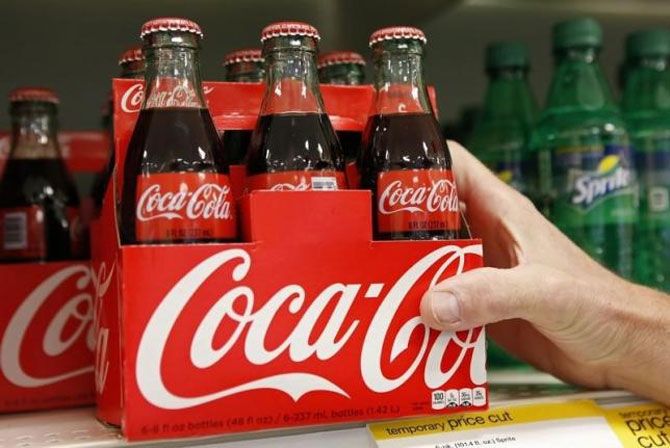
Beverages major Coca-Cola is again in troubled waters.
While it has for quite a while faced questions on over-usage of groundwater in its bottling plants, there is now a First Information Report registered by the police in Kerala against company officials, on charge of exploiting and polluting groundwater sources.
According to a PTI report, one of the charges, and against top officials, including its India head, is for causing distress to the Scheduled Caste community in the Plachimada region.
The plant that is the centre of the latest controversy is operated by the cola major’s bottling subsidiary, Hindustan Coca-Cola Beverages.
The plant in question was shut down in March 2004 after being operational for a few years, as local resident intensified agitation against the company.
Residents in the vicinity alleged over-exploitation of groundwater.
HCCB stated: “We have read about it in the media. Since we have not yet got a copy of the FIR, we are not in a position to respond. We will evaluate the FIR once we get a copy and respond accordingly.”
Coca-Cola has also set a target of making India its fifth largest market in the world, from sixth now.
According to Venkatesh Kini, president, Coca-Cola India and Southwest Asia, four new plants will be added to aid its production here in the next few years.
The company has faced resistance and found itself in controversies a number of times in the recent past.
In January, HCCB shut down its facility in the Kala Dera region of Jaipur district as groundwater levels had depleted. While the firm relocated some of its 115 permanent employees, some 170 contractual workers were left jobless, followed by unrest in the neighbourhood.
According to India Resource Center, an activist organisation, “In 1998, the area’s groundwater was declared as overexploited, the worst category in India. Yet, Coca-Cola built a new bottling plant in 2000.”
According to Amit Srivastava of IRC, at least six Coca-Cola plants in the past two years have been questioned by local residents and various activist groups for over-usage of groundwater.
“Apart from its plants in Jaipur, Varanasi and Plachimada, two proposed plants in Tamil Nadu and Gujarat are questionable decisions, as a threat on the water table persists in those regions,” he said.
Another in Hapur, Uttar Pradesh recently came under the National Green Tribunal’s scanner on allegations of discharging effluents.
In April, the NGT appointed a local commissioner to inspect the region.
Coca-Cola in India procures beverages from 57 bottling units. While 24 are owned by HCCB, another 24 are operated by franchise bottlers which, apart from manufacturing, distribute and sell Coca-Cola’s products.
The other nine are owned by co-packers which do not own the rights to sell its beverages.











